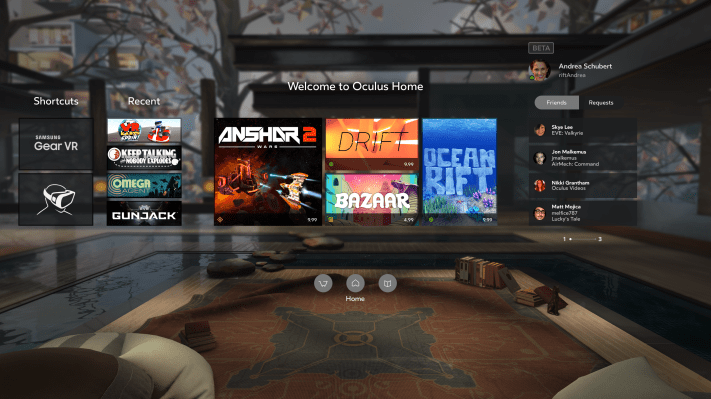Facebook seems to want to replicate some the success of its established platforms with its more emerging ones: The FB job board has a listing for a “News & Media Content Lead,” for VR subsidiary Oculus states right upfront that “effective content aggregation” is “key” to Oculus’ long-term success as a platform.
Facebook’s role as a vector for news, video and other online media definitely helped it become the dominant destination it is today, attracting 1.09 billion daily active users according to its most recent public stats. It has long been one of the apps we spend the most time in on mobile (though the top title now belongs to Pokemon Go), and the aggregation of news is a key ingredient.
While Facebook has eventually become a dominant force in mobile, and in commanding the attention of mobile users, it wasn’t always this way – Facebook has long been criticized for “missing” mobile in the early going, and many see the Oculus purchase as an extreme effort not to repeat that ‘error’ with VR.
It’s hard to talk seriously about Facebook’s past mistakes in the face of its current reality: The company is riding high on a string of super strong earnings reports. But the sense that it may have missed out on early potential by being late to mobile definitely seems to have impacted the company’s thinking around VR.
Oculus’ Rift looked for a while to be the only viable consumer VR handset on the horizon, but HTC and Valve teamed up on the HTV Vive and Steam VR, bringing a capable competitor to market with relative speed. Because of shipping woes, Vive was actually more available to consumers early on than was Rift, though Oculus now says it has caught up with early demand.
There’s already a bit of a war going on regarding platform exclusives, but Oculus looking to stake out its claim early in the nascent, non-gaming VR media space makes a lot of sense, given Facebook’s guidance and the lessons that company has learned about maximizing time spent within a platform. It’s still early days, and there’s little evidence to suggest the VR audience is big enough to make it worth significant investment in the medium for most media companies.
But there’s ultimately no reason for Facebook not to try and anticipate the days in which we look for our media content, as well as our gaming and our social interactions, in a virtual world.
